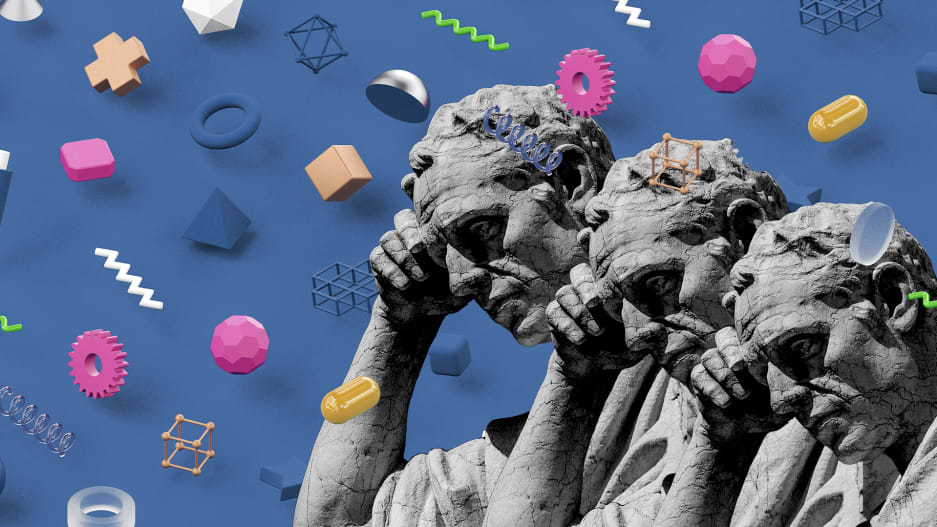You’ll have to accept your limitations and biases.

Imagine sitting at a meeting in your workplace. You have a strong opinion about what your colleagues are discussing. You also know a co-worker of yours has a very different idea. She presents her thoughts while you mentally line up all the points you’re going to (politely) refute. You fidget as she’s finishing her argument, anxious to lay out all the reasons she’s wrong.
When you begin to present your opinion on the matter, you can see the colour rising in her face and notice similar impatient tendencies in her. You think to yourself, “Why doesn’t she get it?”
I want to propose changing that question—but just slightly. Rather than asking yourself something you have no way of answering, ask yourself, “Why don’t I get it?”
WHY WE HAVE MORE BLIND SPOTS THAN WE THINK
You might ask what good that question will do. Well, to start, it turns the attention back to yourself—the only person you can truly change. And the truth is, we’re all somewhat blocked, biased, and blind.
Now, I’m not trying to shame anyone. Simply being a human being of a certain age, gender, time, place, race, and background provides us with a limited lens through which to view the world. We think we can see everything, and it seems so obvious, but you must remember that our perspective is de facto limited and skewed.
Look no further than a phenomenon that commandeered our cultural conversation a few years ago: The Dress. It all started with a photo of a dress posted online followed by a simple question: What colour is the dress? Imagine the surprise when people around the world couldn’t agree on the colour. Some said it was blue with black stripes, while others said it was white with gold stripes (if you ask me, that’s not even close!) The Laurel-Yanny experiment was also an internet sensation and proved the same point about our hearing.
This is just an obvious—and fun—demonstration of a broader and more nuanced truth, that our point of view is only one point of view. Over a 40-year career, I’ve learned that a key to dramatic growth (both personally and professionally) is recognizing this truth. We also need to acknowledge that by accepting and embracing our limitations, we open ourselves to the knowledge, experience, and insights of others.
LISTENING OPENS US UP TO PRODUCTIVE CONVERSATIONS
I must admit, I didn’t always see things that way. As a young entrepreneur in the 1980s, I was stubborn and argumentative, and I was obsessed with proving other people wrong. Eventually, I realized that opening up and genuinely listening was far more productive, effective, and enjoyable–for everyone involved.
So, let’s go back to our meeting example. What would happen if you let go of the need to be right, let your curiosity take the lead, and said to your co-worker after the meeting: “We clearly see this issue in different ways. What am I missing?” I suspect that the dynamic of that conversation would change immediately because your co-worker won’t feel like you’re trying to prove her wrong. Instead, you’re trying to understand the points she’s making. You’re willing to listen and learn, and she’ll likely be appreciative that you value her perspective.
This approach is a game changer, and it’s not limited to meetings. Tough conversations take place in the office and our personal lives, in front of others and one on one. But the benefits of an open mind and an open heart are always enormous.
Here are just some of the rewards I’ve reaped from adopting it:
MORE INFORMATION
By engaging with those you disagree with (and listening to what they say), you’re gathering valuable information you didn’t have before about the topic. You’re also gaining more information on how others see the world (and why.)
LESS STRESS
When you let go of the need to be right, listen to what other people have to say, and let your curiosity roam free, your stress level plummets. This can make a big difference in your overall health and professional satisfaction.
BETTER RESPONSE
If you sincerely try to understand another’s point of view, even if you respectfully disagree with them, they’ll respond better to you. I’ve found this to be true in my own life. When I adopted this approach, I strengthened relationships that would have been strained otherwise.
ENJOYING AN UPWARD SPIRAL
Openness can lead to revelations. Don’t be surprised if you learn that it was you who had it wrong. After all, if two intelligent people disagree, it’s not logical to assume that you’re always right. When you decide to open yourself up in this way, everyone benefits.
So why not give it a shot? Remember that every encounter with a colleague is an opportunity to learn, evolve, and connect if you pay attention and are sincerely curious. If you don’t think that you can hold back, pretend that you’re a journalist who is gathering information for a story.
The more we truly listen, the more knowledgeable we become, the more friends we make, and the less stress we create. And that pays enormous dividends not only for your professional life but for your health and well-being too.
By Joseph Deitch
